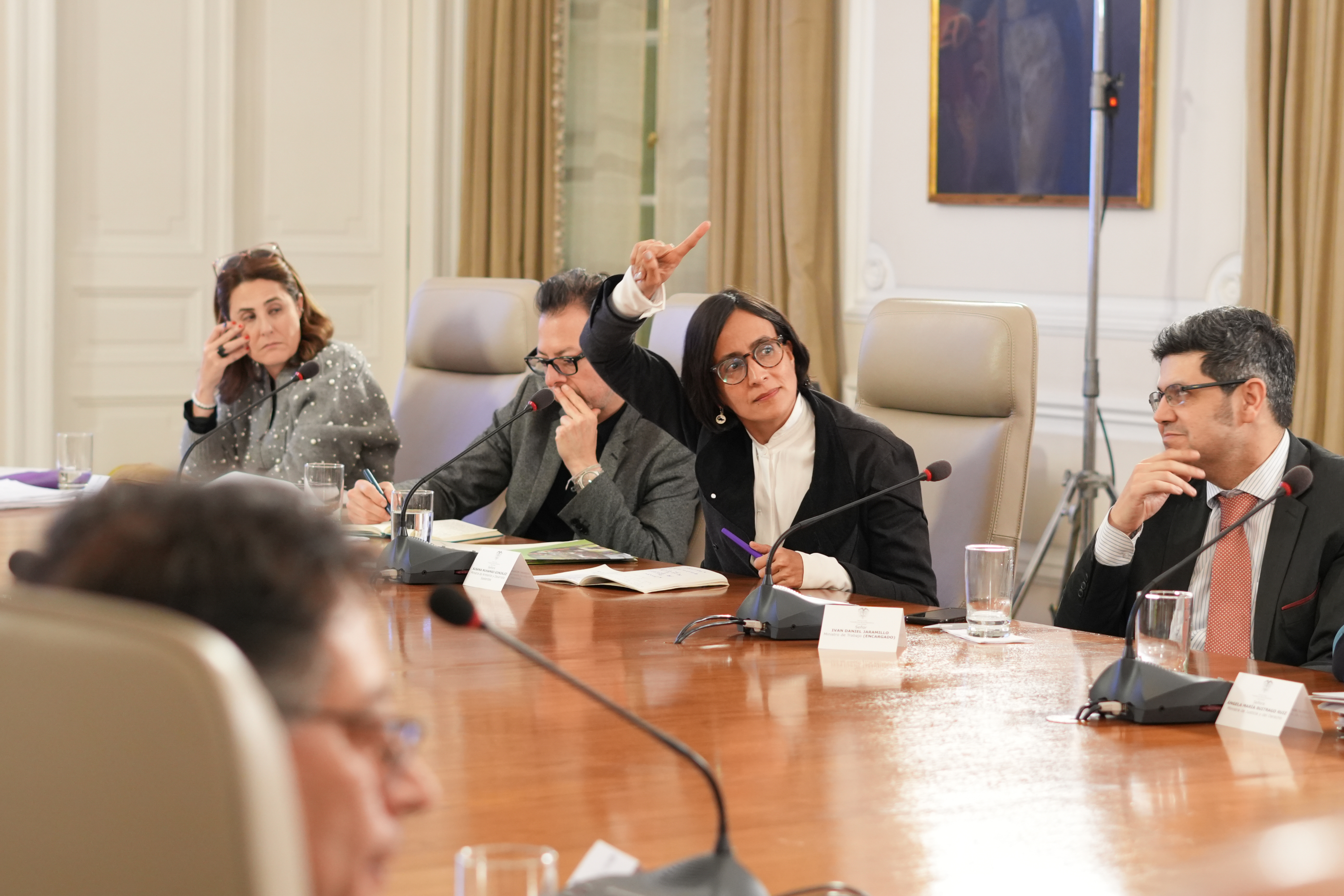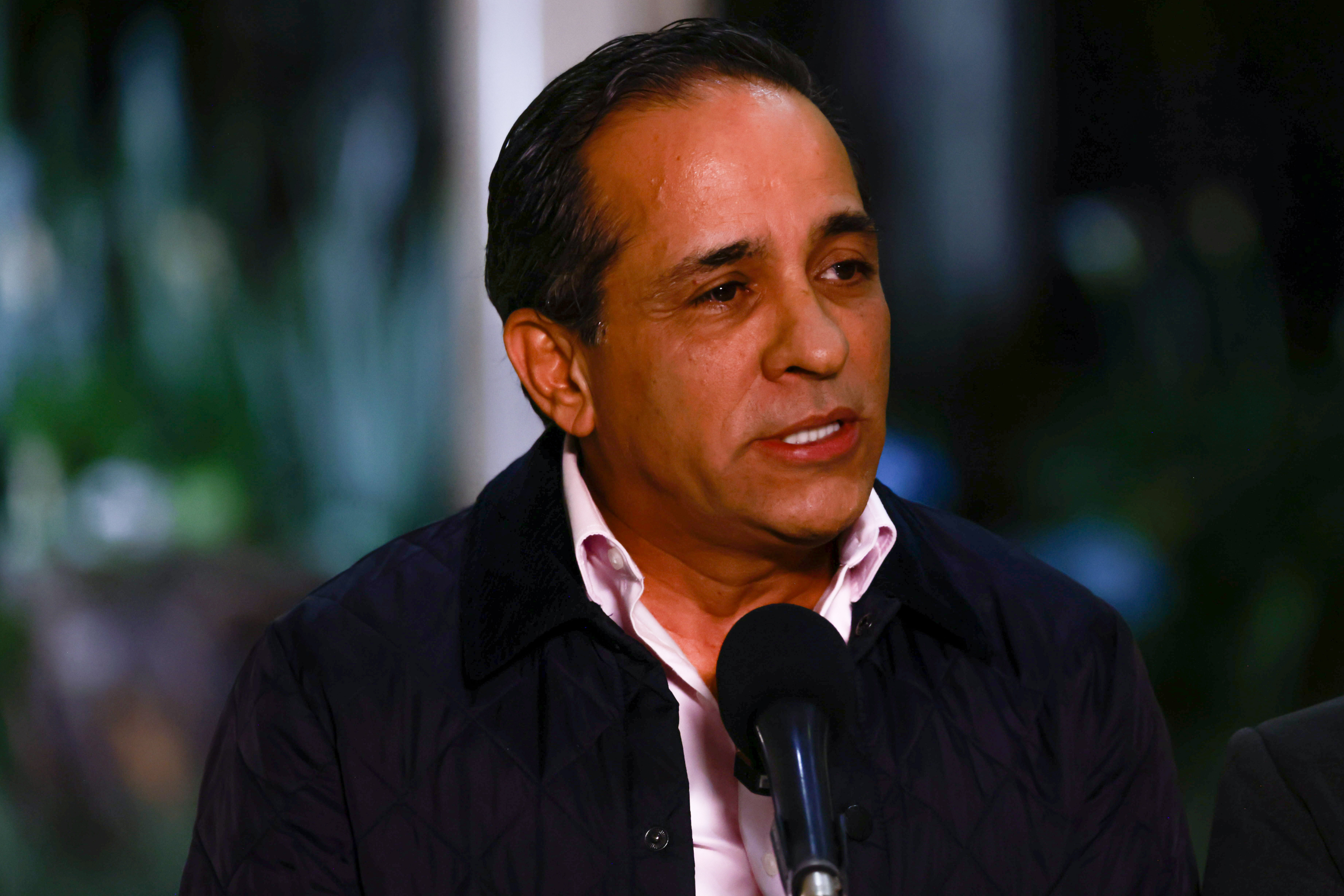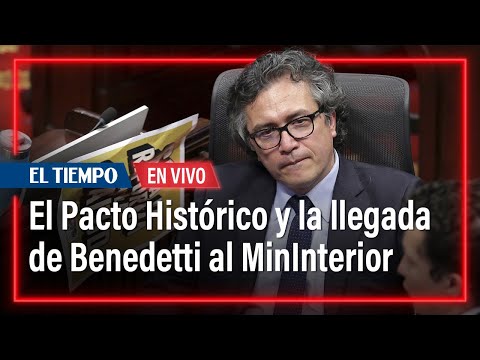Readings of the castling in Gustavo Petro's cabinet

While waiting for the official confirmation of Armando Benedetti's arrival at the Ministry of the Interior and the versions of other movements, Susana Muhamad to the DNP and Alexander López to the head of office, there is already talk of the impact of all these movements. The positions range from criticism and good reception for the new designation of the questioned former ambassador to questions about a government that has bet on the castling of its most recognized figures.
The most talked about topic is undoubtedly that of Armando Benedetti as Minister of the Interior, a topic that has been talked about since the end of last week. The rumors have gained strength since Saturday and many consider it a fact. He would have been in the office for barely three weeks and from there he would have carried out the duties of 'shadow Minister of the Interior', such as the various meetings with the House benches.

Susana Muhamad at the televised cabinet meeting. Photo: Presidency
The possible appointment of his most direct interlocutor in the Government has led Congress to take different positions. The opposition and independent sectors have vehemently expressed their opposition to Juan Fernando Cristo's possible successor. On the other hand, those in the Historic Pact, whose figures initially criticised Benedetti, have been more receptive.
“Benedetti being the Minister of the Interior is a very low blow from President Petro to women, to the fight against corruption and to the promise of change,” said Representative Catherine Juvinao, who then recalled that during the campaign the president raised the feminist flag and now gives his full support to a figure who has been accused of cases of sexist violence.
The control bodies, such as the Ombudsman's Office, have also taken this position. Iris Marín, head of the entity, described the decision as 'inconvenient and disrespectful'. She recalled that Benedetti has been accused of violence against women and alleged corruption.

Alexander López, former director of National Planning Photo: Presidency
However, the members of the Historic Pact and some close to the Government have opted for a more pragmatic position. Senators who had recently travelled, who asked to remain anonymous, recalled their friendship with Benedetti and expressed their willingness to speak with him under that logic.
In the Historic Pact, they emphasized this condition of proximity to the Senate to justify his arrival. Although they said they did not agree with his appointment, they defended it and pointed to the results that the questioned former senator can bring to the government agenda.
“Armando Benedetti can strengthen relations with the other parties in the Senate of the Republic so that the reforms can advance,” said Heráclito Lándinez, representative of the Historic Pact. Gustavo Bolívar, who was one of those who initially opposed Benedetti’s presence in the cabinet, had a similar position.
The director of the Department of Social Prosperity (DPS) highlighted the efforts that Benedetti has made since he took up his position as chief of staff and emphasized his skills as a political operator.
Analysts have highlighted these conditions as the driving force behind the announcements made in recent days. For Professor Jorge Iván Cuervo, from the Externado University, the issue is a big bet by President Gustavo Petro on Benedetti's abilities to interact with Congress. However, he also described the move as risky "because of the resistance that Benedetti has in the country as a political operator due to his ethical questions and criminal proceedings."
Another point they highlight is that the new appointment can be read as a way of recomposing relations with the left-wing sector that distanced itself during the televised cabinet meeting. According to Yann Basset, “with the departure of the left-wing ministers we could think that a government with a more executive profile was being sought, but now with Benedetti's move we see a balance.”

Armando Benedetti has been an ambassador and chief of staff in this government. Photo: Presidency
Cuervo complemented this position by pointing out that this reorganization would have to do with removing Armando Benedetti from a position very close to the president in order to satisfy profiles such as Susana Muhamad and Alexander López. Both had resigned irrevocably, with serious annoyances with Gustavo Petro, but now they would be back in the cabinet after learning that the role of the former senator will not be so close to them.
The reasons for castling In addition to the controversies over Benedetti, attention has also been drawn to the castling that has become customary in this administration. On several occasions, the president has asked for the resignation of some officials, and soon after he recycles them in other departments: Laura Sarabia, Armando Benedetti, Cielo Rusinque, among other profiles appear on the list.
For Basset, these moves are due to the fact that “this reorganization is very complicated and laborious. Like everything in this government, it is done in dribs and drabs and can be confusing and contradictory.”
For Gonzalo Araujo, from the analyst firm Orza, the reading is different, and he points out that in this case it is a safe bet. “Petro is consolidating his cabinet for the last stretch, the most difficult. He is doing this with the help of the emblematic figures of his political project,” said the expert.
The moves could also be related to the president's tendency to use the same profiles. You only need to look at his cabinet in the Bogotá mayor's office to see repeats in the current national administration. Given the difficulties in building bridges with other sectors, the president would be recycling profiles that already demonstrated closeness in his first positions in the Executive.
"These castlings demonstrate the limited circle of trust of President Petro. Instead of exploring and looking for names outside the Historic Pact and other currents, he looks for those names that accompanied him and that have affinity with him," said Patricia Muñoz, professor and director of postgraduate courses in political science at the Universidad Javeriana.
However, this trend raises doubts in some sectors, as they question whether profiles appointed to certain positions later return to completely different departments.
See more: 
Representative Heráclito Landinez speaks. Photo:
Juan Sebastian Lombo Delgado
eltiempo






